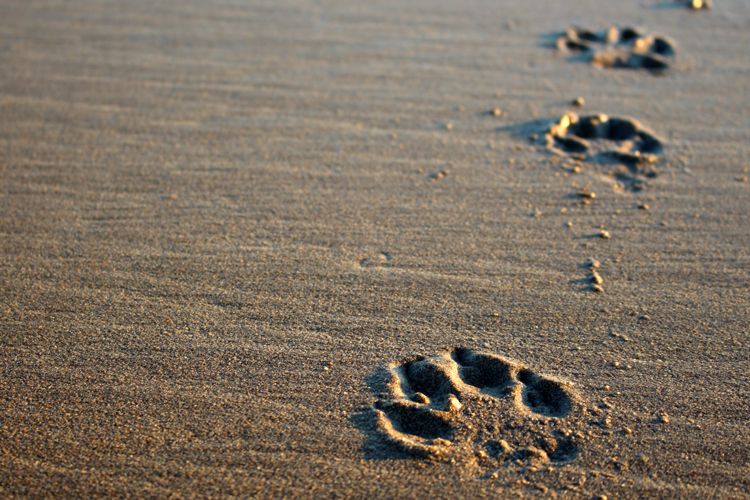How To Choose Emergency Contacts For Any Type Of Emergency
Breathe easier and be prepared for anything by streamlining your emergency contacts.

Most people — even if they’ve put in some thought into potential emergencies — don't usually think about emergency contacts. In fact, it’s often only dealt with on forms when required by schools, jobs, and recreation activities. You might routinely (and somewhat absent-mindedly) fill in a relative, regardless of whether that individual would really be able to help should the need arise. Sure grandma can be counted on to help if she can, but she won’t be able to pick up your kids from soccer if she lives in another state. Not to mention the question of who should you list if you're single and don’t have family nearby?
Family, friends, neighbors, roommates, and coworkers are great choices to have as emergency contacts, but it’s important to consider who might really be the most useful when faced with real emergency situations. Being prepared means organizing your list of emergency contacts so you or your loved ones won’t be scrambling around to find a number if and when the time arises.
Below is a guide to help you prepare for common emergencies and contacts that match the situation.
Emergencies Involving Children
Examples: Picking up a sick child, responding to a child’s injury, pickups after school/daycare/extra curricular activities or sports. Inability to locate child, or child not arriving at locations on time.
Standard Emergency Contacts: Local family, Close family friend who's familiar/close with the child, Children’s friends, Children’s friends parents
Secondary Emergency Contacts: Neighbors, Babysitter, Child’s Physician's office, Non-local family who'll know what to do (because you told them what to do)
General Advice: Take time to organize all your children’s contact and important health information. Make sure to consider listing contacts that make sense for most common emergencies. For example, listing a fellow camper's parent as a contact makes more sense if you can’t make the pick up time, rather than a distant relative.
In the situation that your child doesn’t make it home from school on time, it's practical to first reach out to their friend's parents and the school before jumping to any conclusions and getting the local authorities involved. However, if you're not hearing back or have any concerns, don't hesistate to call 911.
Non Life Threatening Medical Issues
Examples: Getting sick at work or school, injury away from the home, injury in the home
Standard Emergency Contacts: Spouse, Older children, Close family friend, Doctor
Secondary Emergency Contacts: Neighbor, Coworker, Dentist and other specialists, Preferred Hospital, Pharmacy, Have a car service app handy (Uber/Lyft)
General Advice: When medical issues arise it’s important to have essential medical service phone numbers as well as family or friends around to help you or help with your responsibilities (childcare, eldercare, pets). Most areas offer Urgent Care where non-life threatening emergencies can be addressed the same day. If you or someone in your care has a chronic condition that requires a hospital visit, list the name of your preferred hospital to avoid confusion. Having an up-to-date car service app can help avoid astronomical ambulance charges that aren't often covered by insurance.
Of course, call 911 if you're experiencing a life threatening medical issue. Don't worry about money if you or someone you love needs immediate medical care. (Sadly, an ambulance ride is just a drop in the bucket compared with the majority of medical expenses.)
Natural Disasters
Examples: Natural disasters are becoming more common all over the world, some come with advanced warning like hurricanes and others can be rather sudden like earthquakes, floods, or wildfires. Research best ways to prepare for common disasters in your region. Aside from calling 911 if you need to be rescued (fire, police, ambulance), think of these types of contacts in two stages: Aftermath and Personal.
Aftermath Emergency Contacts: Utility companies (power, internet, water, etc.), Property Insurance company, Auto Insurance company, Rental car agency
Standard "We're Ok" Or "We Need A Place To Stay" Contacts: Family, Friends, Coworkers, Preferred hotel/motel
General Advice: Disaster types vary according to region and it’s important to tailor your response to the specific threats you may be facing. Come up with an evacuation plan, have emergency supplies as well as a way to maintain communication with loved ones should there be widespread power outages. Also be sure to set your cellphone to receive emergency alerts.
Legal Emergencies
Examples: You, a friend, or a loved one is arrested.
Standard Emergency Contacts: Family, Attorney
Secondary Emergency Contacts: Friends, Bail Bonds
General Advice: The best advice to follow yourself or offer someone you know is to follow your Miranda rights and remain completely silent and compliant until an attorney is obtained. If you aren’t able to obtain your own lawyer you have the right to request a public defender. As for family, you want someone who you know will answer the phone. It seems quaint to memorize phone numbers nowadays, but you should really try with this one.
Security Emergency
Examples: Break-in or house alarm issues while you're away.
Emergency Contacts: 911, Security company, Neighbor, Close Family/Friend who lives nearby, Property manager or landlord for rentals
Secondary Emergency Contacts: Electrician, Handyman. Property Insurance company
General Advice: When a real security emergency happens it’s necessary to call the police, fire department, or other local authorities (911 is easy to remember). When false alarms (literally) become an emergency you should know how to disable or disconnect your home security alarm. If you’re away it’s a good idea to leave instructions and have a trusted neighbor or friend assist, including giving them security codes or passwords.
If there's a physical issue it may be necessary to contact an electrician, handyman, or service from the alarm company. Removing any batteries and/or disconnecting the hardwire connection to your electrical system may be necessary if it can’t be controlled by the alarm company. If you have a cam that needs to be rebooted because your Wifi was disrupted, a nearby family member or friend can pop by and get you back online.
WiFi Emergency
Examples: Your teenage son isn’t able to game online with his friends and has a meltdown (if you’ve got this in your house you know we’re only half joking), local power outage, local or widespread internet issues, password issues
Emergency Contacts: Internet provider, Power company, Neighbor (maybe they'll let you use theirs)
Other Solutions: Use your phone as a hotspot (damn the extra costs), the location of local public area with free WiFi access
General Advice: It’s a good idea to leave your WiFi login and password information posted somewhere in your home, as well as basic instructions on rebooting the router. In addition, have alternate locations where WiFi can be accessed while your WiFi is out of service. With so many people depending on WiFi for their jobs, smart home devices, and banking and bill pay it’s hard to imagine living without this essential service for very long.
Plumbing Emergency
Examples: Old houses mean you’re going to have some kind of plumbing emergency, and the longer you let it sit the more expensive it becomes. Common small emergencies include clogged drains, overflowing toilets, or broken fixtures, larger emergencies include flooding (for example a broken water heater or a burst pipe).
Emergency contacts: Trusted Plumber, Neighbors, Local friends or family
Secondary Emergency Contacts: Water Removal Specialist, Property Insurance
General Advice: Plumbing emergencies are common and the most important emergency contacts will be 24/7 plumbers, general plumbers, or a local handyman. Ideally you share the name of someone you trust so you don't get ripped off.
If you’re planning on being away from your home for an extended period of time it makes sense to turn off the water to the home (also helps pipes from freezing over in cold climates), or provide a key to a local family member or friend who can periodically check on your home for flooding. If any water is found you’ll need to call in a Water Removal Specialist to minimize damage, as well as document everything for your insurance.
If it’s a major flood due to weather, and everyone's safe, you need to call your Property Insurance provider to get the process of getting your home back in order, which includes removing water, damaged items that can’t be salvaged, and begin mold remediation.
Power Outage
Examples: Outages can happen due to a variety of problems, some minor, like a local small outage or damage to a power line or major issues like a widespread storm or natural disaster.
Emergency contacts: Power Company, Medical facility if you require power due to a condition
Secondary Emergency Contacts: Neighbors, Local friends and family (if you need a place to stay and they still have power)
General Advice: It’s important to make a plan if your community is in an area where power outages are common. Preparation means keeping your handheld electronics and cell phones charged as well as fresh batteries and battery powered lights, chargers, and radios. Homes that frequently see long lasting outages may want to consider installing generators and stock up on these items.
The first step when an outage occurs is to alert your power company to report the outage, so it makes sense to download your power company’s app to provide easy access (many also now offer text alerts during expected outages). Also consider adding the number to your home emergency contact list since anyone watching your home probably doesn’t want to download the app.
In the case of a more widespread outage or disaster cell phone signals may be affected so be sure to plan for meeting spots with family and loved ones.
- All The Information You Need To Share About...It’s incredibly sad to think of our pets without us, but here’s your chance...Read more
- Estate Planning For Your PetsAmerica is approaching a belly rub crisis. Or, in the case of cats, that...Read more
- What To Say To Someone Grieving The Loss Of A PetFor most people, it’s not just a dog, cat, or other domesticated animal....Read more
- Planuary: Organizing For The New YearIf the turn of a new year inspires you to finally get your life in order, we...Read more



